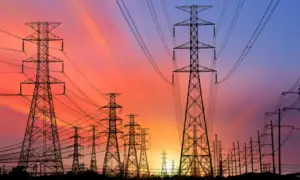
Why in news?
- The recent amendments to the Electricity (Rights of Consumers) Rules, 2020, by the Ministry of Power mark a significant step towards accelerating the adoption of renewable energy, particularly rooftop solar projects.
- These amendments aim to empower consumers by streamlining processes for rooftop solar installation, facilitating electric vehicle (EV) charging, and addressing consumer grievances effectively.
Facilitating Rooftop Solar Installation
- Exemption from technical feasibility studies for rooftop solar systems up to 10 kW capacity streamlines the installation process.
- Reduced timelines for feasibility studies and system commissioning enhance efficiency, promoting the uptake of rooftop solar among consumers.
- Distribution companies bear the cost of necessary system strengthening for rooftop solar projects up to 5 kW capacity, further incentivizing adoption.
Enabling Electric Vehicle Charging
- provision for separate electricity connections for EV charging supports India’s transition towards sustainable mobility.
- Revised timelines for obtaining new electricity connections expedite the deployment of EV charging infrastructure, aligning with carbon emission reduction goals.
Enhancing Consumer Rights and Grievance Redressal in Residential Electricity Services
- Consumers in residential colonies gain the option to choose between individual and single-point electricity connections, ensuring flexibility and convenience.
- Transparent balloting by distribution companies ensures fair decision-making in connection options.
- Parity in tariffs for single-point and individual connections promotes fairness in billing, enhancing consumer satisfaction.
- Mandating additional meter installation in cases of meter reading discrepancies enhances transparency and accuracy in billing.
- Timely resolution of consumer complaints through additional metering instills confidence and trust in the electricity supply system.
Government Initiatives for Solar Energy
- The National Solar Mission and Solar Park Scheme drive large-scale solar energy deployment across the country.
- Initiatives like the Kisan Urja Suraksha evam Utthaan Mahabhiyan (PM-KUSUM) promote solar energy adoption among farmers.
- Participation in the International Solar Alliance strengthens India’s global leadership in solar energy advocacy.
- Schemes like the Pradhan Mantri Suryodaya Yojana aim to provide reliable and affordable solar power to rural areas, promoting energy access and sustainability.
Conclusion
- The amendments to the Electricity Rules reflect the government’s commitment to promoting renewable energy adoption and empowering consumers in the electricity sector.
- By streamlining processes for rooftop solar installation, facilitating EV charging infrastructure development, and enhancing consumer rights and grievance redressal mechanisms, these amendments pave the way for a cleaner, greener, and more consumer-centric energy future.
- As India continues its journey towards sustainable development, such initiatives play a crucial role in advancing the country’s energy transition and achieving its climate goals.
people also ask
Q1: What are the key amendments introduced in the Electricity (Rights of Consumers) Rules, 2020?
Ans: The key amendments focus on expediting the installation of rooftop solar projects, facilitating electric vehicle charging infrastructure, and enhancing consumer rights and grievance redressal mechanisms.
Q2: How do the amendments streamline the process for rooftop solar installation?
Ans: The amendments exempt rooftop solar systems up to 10 kW capacity from technical feasibility studies and reduce timelines for feasibility studies and system commissioning, making it easier and faster for consumers to adopt rooftop solar.
Q3: What provisions are made for electric vehicle charging stations?
Ans: The amendments allow consumers to obtain separate electricity connections for charging electric vehicles, aligning with India’s goals for sustainable mobility and reducing carbon emissions.
Q4: What rights do consumers in residential colonies gain through the amendments?
Ans: Consumers in residential colonies now have the option to choose between individual and single-point electricity connections, with transparent balloting ensuring fair decision-making. Parity in tariffs further enhances consumer satisfaction.
1 thought on “Empowering Consumers and Advancing Solar Energy: Amendments to Electricity Rules”